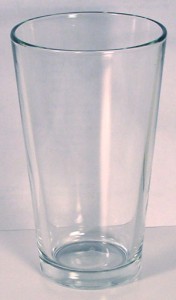 Speech changes during intoxication. We slur, we stammer, we curse. Our normal, everyday speech patterns differ markedly from our drunken idiolects (the word’s similarity to ‘idiot’ never seemed as apt as it does in this context.)
Speech changes during intoxication. We slur, we stammer, we curse. Our normal, everyday speech patterns differ markedly from our drunken idiolects (the word’s similarity to ‘idiot’ never seemed as apt as it does in this context.)
You may wonder, then, if anyone has studied ‘drunken’ accents and/or dialects in much the same way they study more, uh, ‘orthodox’ linguistic classifications. And indeed, there is a 2001 study entitled Effects of ethanol intoxication on speech suprasegmentals by Harry Hollien and colleagues*.
Hollien, et al., administered controlled amounts of alcohol to a group of young adults, and quantified the aspects of their speech that changed the drunker they got. One of the more prominent things found to shift during intoxication is the ‘fundamental frequency’ of one’s speech; roughly speaking, that suggests that the pitch of your voice gets higher the more you drink. (Perhaps the origin the semi-apochryphal notion that ‘The Star Spangled Banner’ began as a drinking song; those high notes are hard to hit).
The researchers also found a decrease in the subjects’ speaking rate as they become more intoxicated. There seems a specific point at which this slowing of speech occurs: men slow down the most at a blood alchohol level between 0.04 and 0.08; for women, this occurs between 0.08 and 0.12.
Finally, the researchers found that the most striking impact of alchohol on speech was an increase in ‘nonfluencies.’ That is, people stammer, stutter, and trip on their words a whole heck of a lot more when they’ve had a few too many. Just how much does this intensify? The researchers found that in the severely intoxicated, the rate of these ‘speech errors’ nearly triples.
You may note something unintentionally funny about these findings. After all, that drunk people speak at a higher pitch, more slowly, and more haltingly is not a set of observations you need to be a trained acoustician to notice. (I also giggle when I imagine a group of serious scholars carefully monitoring the behavior of a group of drunk twenty-somethings). Still, it’s fascinating to see these observations quantified.
Something that isn’t mentioned in the study is what I find to be the most salient feature of ‘drunken speech:’ hypercorrection. Drunk people, aware of their intoxicated state, often overcompensate by overenunciating evvvveerrry ccconnnsonnantttt and vowel. Perhaps this relates to the higher rate of stuttering and stammering: when you put such pressure on yourself to pronounce everything perfectly, you’re bound to trip up!
*H. Hollien, G. Dejong, C. Martin, R. Schwartz, and K. Liljegren, “Effects of ethanol intoxication on speech suprasegmentals,” Acoustical Society of America Journal, vol. 110, no. 6, pp. 3198–3206, 200.


There is also the excellent Alcohol Language Corpus from the Bavarian Archive for Speech Signals (http://www.phonetik.uni-muenchen.de/Bas/BasALCeng.html). The data is all form German speakers, but it’s still fascinating – the scale of the project (162) speakers and the methodology alone are facinating.
That’s a very neat resource. You may note in the first of the speech samples they provide (at the bottom of the page), that the speaker exhibits the high rate of nonfluencies that the other study found: lots of starting and stopping and stumbling over words.
True – but one of their most interesting findings is how inconsistent such phenomena are across drunken individuals. I know that they had a competition as part of something like Interspeech to see whether people given data could find a consistent way to determine who was drunk, but there isn’t anything consistent enough in the data to do that.
They originally got the funding for the project because they said they were trying to create a voice activated drink-driving prevention measure. The team found that (as most people will know anecdotally) there are people who manage to show minimal or no speech disfluency even when quite intoxicated.
Hypercorrection could explain some slurring, but lots of alcohol + nervous system probably covers most of it. Coordination lessens. Just like moose or baboons drunk on fermented fruit start to stumble, so the tongue stumbles. Most of it is probably not cognitive, but simple muscle, nervous system, brainpan misfire fail.
I think the two go hand in hand. Your coordination weakens, and as it does, you start to overshoot the amount of effort it takes to do simple things.
One interesting thing which I didn’t mention in the post is that the researchers found that ‘heavy drinkers’ show less of a change in speech while intoxicated. It’s possible that impairment while drunk is compounded by most people’s relative inexperience being drunk.
There’s an article on drunken phonology by Royal Skousen in one of the Chicago Linguistics Society volumes from the mid-seventies… ah, here it is: “The Phonology of Drunkenness” (with Leland Lester), Chicago Linguistic Society, 18 April 1974, University of Chicago, Chicago, Illinois.
Hello, could you help me, please, to find either examples or transcripts of alcohol speech in English? Does anybody know any helpful research resources on this topic?
Natalya–see my citation of the Skousen article above. It may have references. I would suggest asking this question at Language Log (http://languagelog.ldc.upenn.edu/nll/ ) and/or the Linguist List (linguistlist.org/ ).